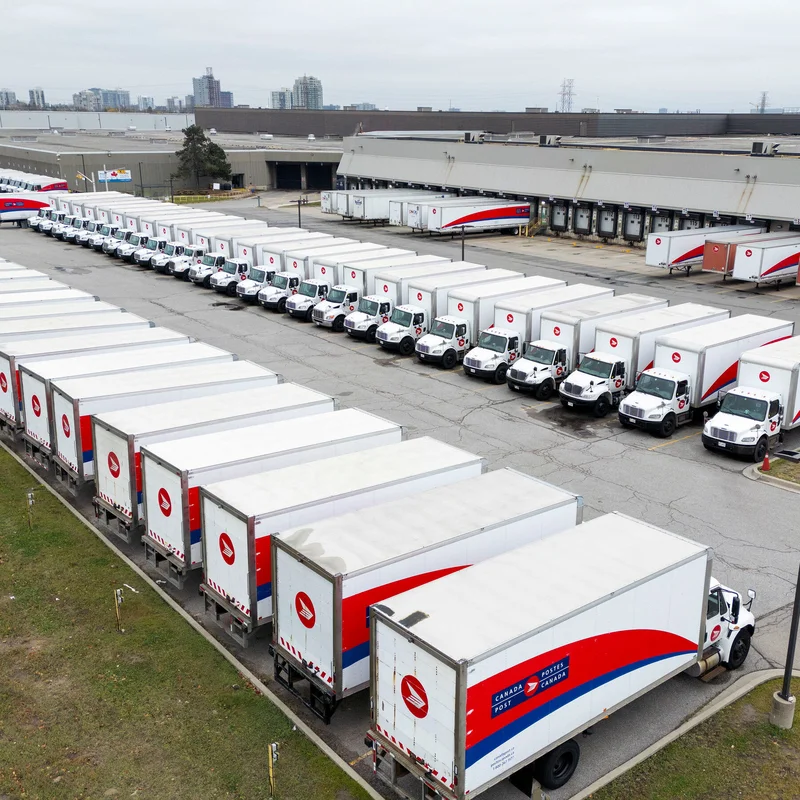Table of Contents
- G.M. Halts EV Van Production in Canada
- The BrightDrop Blow
- Trump Tariffs and Trade Tensions
- A Second Strike to Canada’s Auto Industry
- What Happens to the Ingersoll Factory?
- Sources
G.M. Halts EV Van Production in Canada
In a major setback for Canada’s electric vehicle ambitions, General Motors announced Tuesday it will cease production of its BrightDrop electric vans at its Ingersoll, Ontario plant—eliminating approximately 1,200 jobs and casting doubt on the future of one of North America’s most heavily subsidized EV projects.
The decision comes just days after Stellantis revealed it would shift production of a new Jeep model from Brampton, Ontario to Illinois, marking the second devastating blow to Canada’s auto sector in less than a week.
The BrightDrop Blow
Launched with fanfare in 2022, the BrightDrop van was heralded as a cornerstone of G.M.’s commercial EV strategy. The Ingersoll facility—retooled with nearly CA$1 billion in combined federal and provincial funding—was meant to position Canada as a leader in sustainable transportation.
But demand never materialized as expected. “The commercial electric van market has been developing much slower than anticipated,” G.M. CEO Mary Barra told investors on a Tuesday conference call.
Production had already been paused in May due to sluggish sales and was slated to restart in November. That plan is now scrapped indefinitely.
Trump Tariffs and Trade Tensions
While G.M. cites weak market demand, Canada’s largest private-sector union, Unifor, points squarely at former President Donald Trump’s trade policies.
“This shutdown is a direct result of Trump’s 25% tariff on Canadian-made vehicles and his rollback of U.S. EV tax credits,” said Unifor National President Lana Payne. “Now more than 1,000 workers and their families are paying the price for political interference.”
The tariffs, imposed during Trump’s second term, significantly raised the cost of exporting Canadian-built vehicles to the U.S.—G.M.’s primary market for the BrightDrop van. Without access to U.S. federal EV incentives, fleet buyers turned elsewhere.
A Second Strike to Canada’s Auto Industry
G.M.’s exit follows Stellantis’s October 15 announcement that it would abandon plans to produce a new Jeep model in Brampton, Ontario—a facility idled since 2023 with 3,000 workers still awaiting rehiring.
Together, these decisions threaten to unravel decades of auto manufacturing stability in southern Ontario, long considered the heart of Canada’s industrial economy.
Recent Auto Job Losses in Canada (2025)
| Company | Location | Jobs Affected | Reason |
|---|---|---|---|
| General Motors | Ingersoll, ON | 1,200 | Low EV van demand, U.S. tariffs |
| Stellantis | Brampton, ON | 3,000 (idle since 2023) | Production moved to Illinois |
| General Motors | Oshawa, ON | 2,000 | Shift elimination at pickup plant |
What Happens to the Ingersoll Factory?
G.M. has not confirmed whether the Ingersoll plant will close permanently. The company says it will meet with Unifor and government officials to explore alternatives, including potential retooling for another vehicle.
Canada’s Industry Minister Mélanie Joly acknowledged the situation differs from the Stellantis case—where the government may pursue legal action due to unmet investment commitments—but stressed that G.M. still has obligations tied to the CA$1 billion in public funding.
“We will hold them accountable,” Joly said. “And we will fight to bring production back to that facility.”
For now, however, the future of Ingersoll—and Canada’s role in the North American EV revolution—hangs in the balance.



